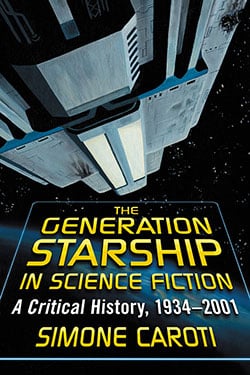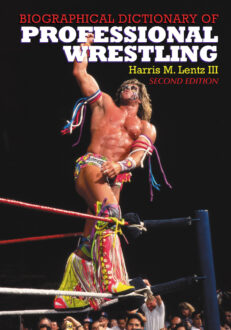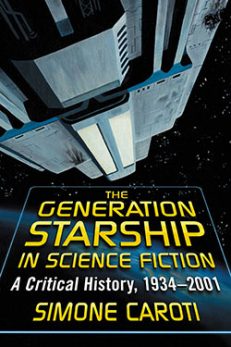The Generation Starship in Science Fiction
A Critical History, 1934–2001
$29.95
In stock
About the Book
This critical history explores the concept of the multi-generational interstellar space voyage in science fiction between 1934, the year of its appearance, into the 21st century. It defines and analyzes what became known as the “generation starship” idea and examines the science and technology behind it, also charting the ways in which generation starships manifest themselves in various SF scenarios. It then traces the history of the generation starship as a reflection of the political, historical, and cultural context of science fiction’s development.
About the Author(s)
Bibliographic Details
Simone Caroti
Format: softcover (6 x 9)
Pages: 275
Bibliographic Info: chronology, notes, bibliography, index
Copyright Date: 2011
pISBN: 978-0-7864-6067-0
eISBN: 978-0-7864-8576-5
Imprint: McFarland
Table of Contents
Preface 1
Introduction: Death and Rebirth of a Dream 5
1. Fathers 19
2. The Gernsback Era, 1926–1940 39
3. The Campbell Era, 1937–1949 80
4. The Birth of the Space Age, 1946–1957 120
5. The New Wave and Beyond, 1957–1979 143
6. The Information Age, 1980–2001 192
Conclusion. Trip’s End? 239
Appendix. The Generation Starship: A Chronological Bibliography 249
Chapter Notes 253
Bibliography 261
Index 265
Book Reviews & Awards
“strongly recommended”—Midwest Book Review; “explores the multigenerational interstellar space voyage in science fiction from its first filmic appearance to the 21st century. The history of the generation starship is viewed as a reflection of the political, historical and cultural context of the genre’s development”—CBQ.






